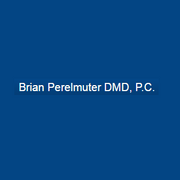Why Is It Important to Clean Your Tongue?

Many people know that brushing twice and flossing once a day prevent gum disease and maintain a healthy mouth. However, cleaning your tongue is also essential for preserving your dental health. Here's what you should know about the importance of this practice and how to incorporate it into your daily routine.
Why Should You Clean Your Tongue?
The tongue is one of the most bacteria-laden parts of your body. It is covered in thousands of small bumps known as taste buds, or papillae. It also has many small crevices and other structures where bacteria can hide and multiply.
When these bacteria build up and become trapped on the tongue, they can irritate and inflame the papillae, causing a thick, white, sticky film to form. This condition is called White Tongue. It can appear in spots or cover the entire surface of the tongue. It may cause a bad taste in your mouth and give you bad breath.
When the bacteria on your tongue come in contact with sugary foods, they release acids that cause gum disease and tooth decay. They also emit sulfurous compounds that can result in chronic bad breath, called halitosis. Cleaning your tongue daily stops bacteria from building up in the small crevices and on the papillae and helps prevent gum disease, tooth decay, and halitosis.
How Can You Clean Your Tongue?

By using a toothbrush, you can easily incorporate tongue cleaning into your daily dental hygiene routine. After brushing your teeth, spit out any excess toothpaste and saliva. While your toothbrush still has some toothpaste on it, gently brush the entire surface of your tongue in short side to side and front to back motions for about 15 to 30 seconds.
Being careful not to apply too much pressure or brush too vigorously will ensure you don't damage the delicate tissue. After you're done, rinse your mouth out with water.
Another option is to use a specialized tongue scraper designed to remove bacteria. This spoon-shaped device comes in metal or plastic varieties and can be purchased at most drugstores. Some toothbrushes come with a scraper built into the back of the handle.
After brushing and flossing, place the scraper as far back on your tongue as you comfortably can and gently pull it forward along the surface of the tongue. Repeat this process two or three times, rinsing the scraper with warm water between each scrape.
Along with daily brushing, flossing, and tongue cleaning, regular dental checkups are important for your oral health care. Brian Perelmuter, DMD, P.C., in Naugatuck, CT, has provided compassionate preventive care to patients of all ages for over 21 years. They build a trusting and cooperative relationship with each patient to support a lifetime of excellent oral health. Call (203) 729-3323 to schedule an appointment, or visit them online to learn more about their services.
About the Business
Have a question? Ask the experts!
Send your question

